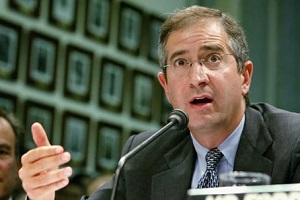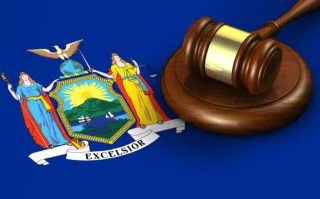“More Likely Than Not”: New Amendments to FRE 702 Demand More Exacting Standard for Admitting Expert Testimony
Co-author Rosalie N. Messina (Associate, Long Island, NY)

Product Liability trials always involve expert testimony offered to assist the jurors in those areas that require scientific or technical knowledge. In actions litigated in federal court, Federal Rule of Evidence (FRE) Rule 702 governs the admissibility of expert testimony. Rule 702 has two primary purposes, (1) to assist the trier of fact and (2) to ensure the proposed expert testimony is both reliable and relevant. On April 24, 2023, former Speaker of the House Kevin McCarthy submitted to Congress amendments to the Federal Rules of Evidence, including proposed amendments to Rule 702. On December 1, 2023, Rule 702 was amended and product manufacturers and their insurance carriers should be aware of this amendment and its potential impact to product liability litigation.
Comparison of the Previous Rule 702 with the Current Rule
The Prior Rule stated:
A witness who is qualified as an expert by knowledge, skill, experience, training or education may testify in the form of an opinion or otherwise if:
(a) The expert’s scientific, technical or other specialized knowledge will help the trier of fact to understand the evidence or to determine a fact in issue
(b) The testimony is based on sufficient facts or data
(c) The testimony is the product of reliable principles and method
(d) The expert has reliably applied the principles and methods to the facts of the case.
The New Rule states:
A witness who is qualified as an expert by knowledge, skill, experience, training or education may testify in the form of an opinion or otherwise if the proponent demonstrates to the court that it is more likely than not that:
(a) The expert’s scientific, technical, or other specialized knowledge will help the trier of fact to understand the evidence or to determine a fact in issue
(b) The testimony is based on sufficient facts or data
(c) The testimony is the product of reliable principles and methods
(d) The expert’s opinion reflects a reliable application of the principles and methods to the facts of the case.
The amendments therefore impact the offering party’s burden of proof and address the requirement that the expert testimony be the product of a reliable methodology.
With respect to the burden of proof, the amendment introduces the “more likely than not” language. This establishes that the proponent of the expert testimony bears the burden of convincing the court that the conditions (a) to (d) are met with a probability of more than 50 percent. This is akin to a preponderance of the evidence standard, which makes it clear that a mere assertion is insufficient to admit expert testimony. Previously, Rule 702 did not explicitly include a preponderance standard, though this standard applies to a majority of the admissibility requirements set forth by the Federal Rules of Evidence. The Advisory Committee on Evidence Rules also clarified that the “more likely than not” standard is “substantively identical to the preponderance of the evidence standard.
Regarding the reliable application, the prior rule required that the “expert has reliably applied the principles and methods to the facts of the case.” However, the Advisory Committee on Evidence Rules unanimously agreed to propose a subtle shift by stipulating that the expert’s opinion must reflect “a reliable application of the principles and methods to the facts of the case.”* The emphasis here is on the expert’s opinion being a reflection of a reliable methodology.
For proponents of expert testimony, the explicit burden to prove by a preponderance of the evidence that the expert's testimony meets the outlined criteria could result in more rigorous pre-trial preparations and potential challenges, as parties will need to be further prepared to demonstrate the reliability and relevance of their experts under this standard.
Furthermore, for opponents of expert testimony, this rule provides clearer grounds to challenge expert testimony since opponents can now argue that the proponent has not met the “more likely than not” threshold in establishing the criteria.
Finally, the introduction of the “more likely than not” standard provides judges with a clearer benchmark when performing their gatekeeping role, ensuring that only reliable and relevant expert testimony reaches the jury.
In May 2022, the Advisory Committee on Evidence Rules (the Committee) unanimously approved the proposed changes to the language of Rule 702. Notably, the Committee unanimously favored a minor amendment to subsection (d) that emphasizes that courts must direct their focus on an expert’s opinion, and must find the expert’s opinion comes from a reliable methodological application. Additionally, the Committee also unanimously agreed to an amendment to Rule 702 that places a burden on the proponent of the expert’s testimony to prove to the court that it is more likely than not that the reliability requirements underpinning the expert’s opinion are satisfied.
Further, the Committee clarified in its report that nothing in the amendment changes the basic rule underscoring Rule 702, the application of which is applicable to a situation in which a party has created a misimpression about an expert’s statement, and the adverse party proffers a completing statement that corrects any such misimpression. U.S. District Judge Patrick Schiltz of Minnesota, chair of the Advisory Committee on Evidence Rules, reiterated the Committee’s opinion, stating that the amendment “does not change the law at all. It simply makes it clearer.” In sum, while the core tenets of Rule 702 remain intact in the amended rule, the latter offers a more detailed framework, clarifying the standard of proof and emphasizing the connection between the expert's methods and their conclusions.
These changes to Rule 702 will certainly have an impact on products liability litigation.
Rule 702 serves a pivotal role in product liability litigation by ensuring that expert testimony admitted in federal court is both relevant and reliable. It allows experts wide latitude in presenting their specialized knowledge while mandating stringent checks to ensure that such knowledge is applied in a methodologically sound and pertinent manner to the facts of the case.
* Memorandum to Hon. John D. Bates, Chair, Standing Committee on Rules of Practice and Procedure from Hon. Patrick J. Schiltz, Chair, Advisory Committee on Evidence Rules, May 15, 2022, 6, https://www.uscourts.gov/sites/default/files/evidence_rules_report_-_may_2022_0.pdf.


 By
By




